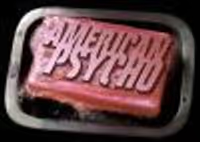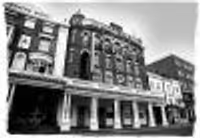The Inheritance - Previews
#325The Inheritance - Previews
Posted: 12/23/19 at 12:23pmIt’s true one can see an Ibsen play, love and respect it, and then spend the rest of the night at a sex party. Nothing wrong with that.
#326The Inheritance - Previews
Posted: 12/23/19 at 12:27pm
It’s true one can see an Ibsen play, respect and love it, and then spend the rest of the evening at a sex party. Nothing wrong with that.
I’m being sincere.
#327The Inheritance - Previews
Posted: 12/23/19 at 1:01pmI truly am amazed by how lengthy and complex this conversation is. That we are all still discussing it does suggest the play has power. Be it positive or negative or somewhere in between, the play has power. And that should be acknowledged.
SS3
Swing Joined: 11/12/19
#328The Inheritance - Previews
Posted: 12/23/19 at 2:00pm
Did anyone find it distracting that the play made a point of letting us know Eric was Jewish, when it never became relevant in the play?
Jews have a long cultural history and community that Eric is part of and has 'inherited'. I viewed this as Matthew contrasting it with the questions he's raising about gays and if we have a shared past.
NativeNYer2
Chorus Member Joined: 3/11/18
#329The Inheritance - Previews
Posted: 12/23/19 at 2:38pm
Kad, I think your frustration is misdirected. I am not saying that you cannot be obsessed with sex and underwear and also care about great art, literature, and film. But I am wondering if the playwright subconsciously (or consciously) chose to have the only character in the group who did not participate in that sequence also be the same character to have a transcendent experience and to have this passion for the arts. Is it a coincidence? Or is there a connection? Eric also denies a sexual advance from someone to whom he is attracted. Does such carnal control also free one up to love the arts and to have transcendental experiences? Or can we get too lost in the pleasures of the body (and the pleasures of, apparently, gay underwear, even though I didn't know that existed) and can these fascinations lead to focusing on self-pleasure so much that we do not have space to care about other things? I did not write these scenarios. The playwright did. Are these things coincidences or not? Your trouble is with the playwright, not me. If the playwright did not make these decisions consciously, then I must assume that he made them subconsciously. I do not see these as coincidences in the writing. I actually have a close personal friend who is quite celebrated in the Broadway community as of recently, and he is no stranger to being subsumed with sex and pleasures of the body, and he also deeply appreciates great literature. I know this because I have had in depth conversations with him. But I can see the idea that people who are subsumed with self-pleasure may focus on it too much to focus on anything else... almost as though they are addicted to the culture. I can see this as a possibility. Matthew Lopez's subconscience (or conscience) perhaps sees this as more than a possibility, or perhaps it does not.
Clever2, I agree with you. The fact that the play is generating so much discussion is a testament to its richness.
SS3, you are making me think of something. I suppose the play argues that young gay people today do not feel the connection to the gay past as much as they should, or that their lives would be richer if they paid debt to them. In a sense, the same could be said of today's young Jews. When I was growing up, when people would learn they were having a baby, they always always always always named the baby after someone from the past. They honored someone from their family by naming them, and this felt like an emotional obligation. Today, this practice, at least among my Jewish friends (and being Jewish myself, I have many) is practically abolished. I will often hear the question asked "Who did you name the baby after?" and the response is often "No one. We just wanted the name to be pretty." The emotional obligation to honor one's dead ancestors is barely a thing anymore. The decline in this tradition can also be said to be indicative of a diminished connection with the past among Jews.
Ultimately, though, the fact still remains that Eric's Jewishess does not add to his character or to the events of the play. I asked Soller why they bothered to make him Jewish if it had no dramatic effect, and he told me that there was initially more in the play about Eric's Jewishness but it ended up being cut from the play. I just think they should have gone further to cut any mention of him being Jewish because I kept waiting for it have relevance, and it never came. In Angels in America, when you learn that some of the characters are Mormon, that becomes painfully relevant. Without knowing they are Mormon, it becomes an entirely different play. If you learn a character's religion, it should mean something. They may as well have said he was diabetic. It would have had the same dramatic effect on the rest of the play: none.
#330The Inheritance - Previews
Posted: 12/23/19 at 3:19pm
NativeNYer2- My apologies, but your post did make it seem as though you were the one espousing that worldview, not Lopez.
Eric's Jewishness seemed to me to exist as nothing more than a handwaved explanation for how he has his rent controlled apartment.
magictodo123
Broadway Legend Joined: 3/18/19
#331The Inheritance - Previews
Posted: 12/24/19 at 8:28am
I was somewhere and I believe some people who have insider knowledge were discussing the show near me; I believe they think the show wants to try to push through to awards season and then it might close up shop depending on the outcome there.
#332The Inheritance - Previews
Posted: 12/24/19 at 9:12am
magictodo123 said: "I was somewhere and I believe some people who have insider knowledge were discussing the show near me; I believe they think the show wants to try to push through to awards season and then it might close up shop depending on the outcome there."
I think that is the gameplan for any financially struggling open run? Although it is a two step process: We got nominated? If yes, stay open through the awards. If not, announce closing. Then, the same process after the awards.
#333The Inheritance - Previews
Posted: 12/24/19 at 9:44am
With the winter sale in place ($59/$39), I believe the producers know their only hope at remaining at the break even point is to pitch Part One as a standalone piece. Jan - March is a difficult sell and the weeknights for this show will be a challenge. I pulled a Sunday night for Part 2 the day before, and ended up in a center orchestra seat. When I saw part one at a recent Wed matinee, the entire rear mezz was empty. The advance sale must be negligible. Surviving to May/June seems a pipe dream, but who knows? If they can break even pushing Part One, they have a shot. A preponderance of the public will not invest 7 hours in this, and that explains the 5-3 ratio of One to Two. I wish they had a part two matinee, as did several people I spoke to Sunday night. But Is suspect they couldn't risk it. Watch the box office for the second week of January.
#334The Inheritance - Previews
Posted: 12/24/19 at 9:53am
All one has to do to see how advance sales are going is get on Telecharge and look at the seating charts from performance to performance. There’s no reason to speculate when you can easily investigate.
In other news, quite brave to extend a show with an average of 65% capacity an additional three months.
#335The Inheritance - Previews
Posted: 12/28/19 at 9:09pm
Per recommendation, I watched the movie of Howard’s End this week in preparation for seeing The Inheritance Parts 1 & 2 next Sunday. I know the mini-series tends to come more heavily recommended as a primer for The Inheritance, but wasn’t sure I had the time or inclination to watch it. Anyway, I’ve started the mini-series today (currently, on Episode 3) and so far, I do find the mini-series far superior to the movie. I did especially love Helena Bonham Carter in the movie.
I found the “transitions” between scenes in the movie rough and subpar. Also, with four hours to tell the story in the miniseries, there are more details to make things clearer. In the movie, character’s actions sometimes appeared random to me at least due to lack to detail and context.
Having, said that I still don’t get the appeal of Henry in either version. He’s an uptight snobby self-satisfied a-hole in both. I’m not sure what Margaret sees in him. I know especially then, women were expected to marry for security, not love. And indeed, in the movie Helen asks Margaret if she loves Henry after he proposes and she replies that she likes (?) him, but will grow to love him. However, I never get the feeling in either version that she is only marrying for security. So what’s the attraction then? Is it that she is 28 and doesn’t want to be an old maid? The actor who plays Henry in the mini-series is also in the HBO series Succession. Henry is a less vile version of that character.
Lastly, I think as good as the miniseries is, I don’t find the historical fiction of well-off white people (with the exception of Jackie in the movie) that riveting. Quite ironic I know, given all the criticism that The Inheritance has received for similar issues.
(I do like HBO’s Succession, because there are huge stakes at play and every character (all of them in the 1%) are vile and yet nuanced in their own ways. You ultimately want them to succeed or fail depending on the moment and the context and if you hate their current opponent more.)
SouthernCakes
Broadway Legend Joined: 7/29/19
#336The Inheritance - Previews
Posted: 12/28/19 at 11:43pmI’m waiting for part 2 on TDF. But maybe I’ll try rush
A Director
Broadway Legend Joined: 12/18/07
#337The Inheritance - Previews
Posted: 12/29/19 at 12:41am
Miles2Go2 said: "Per recommendation, I watched the movie of Howard’s End this week in preparation for seeing The Inheritance Parts 1 & 2 next Sunday. I know the mini-series tends to come more heavily recommended as a primer for The Inheritance, but wasn’t sure I had the time or inclination to watch it. Anyway, I’ve started the mini-series today (currently, on Episode 3) and so far, I do find the mini-series far superior to the movie. I did especially love Helena Bonham Carter in the movie.
I found the “transitions” between scenes in the movie rough and subpar. Also, with four hours to tell the story in the miniseries, there are more details to make things clearer. In the movie, character’s actions sometimes appeared random to me at least due to lack to detail and context.
Having, said that I still don’t get the appeal of Henry in either version. He’s an uptight snobby self-satisfied a-hole in both. I’m not sure what Margaret sees in him. I know especially then, women were expected to marry for security, not love. And indeed, in the movie Helen asks Margaret if she loves Henry after he proposes and she replies that she likes (?) him, but will grow to love him. However, I never get the feeling in either version that she is only marrying for security. So what’s the attraction then? Is it that she is 28 and doesn’t want to be an old maid? The actor who plays Henry in the movie is also in the HBO series Succession. Henry is a less vile version of that character.
Lastly, I think as good as the miniseries is, I don’t find the historical fiction of well-off white people (with the exception of Jackie in the movie) that riveting. Quite ironic I know, given all the criticism that The Inheritance has received for similar issues.
(I do like HBO’s Succession, because there are huge stakes at play and every character (all of them in the 1%) are vile and yet nuanced in their own ways. You ultimately want them to succeed or fail depending on the moment and the context and if you hate their current opponent more.)"
Here are a few things for you to think about.
1. The actor who plays Henry in the movie is Sir Anthony Hopkins.
2. The Basts are not well-off.
3. The novel is not historical fiction.. The time period is the same as when it was written. An example of historical fiction novel would be one published today, but set during World War II. The movie, on the other hand is historical fiction.
4. When the movie came out in 1992, it was highly regarded and I'm not aware of complaints about it being about well-off white people. Attitudes toward such stories have probably changed in 27 years.
#338The Inheritance - Previews
Posted: 12/29/19 at 12:49am
Oops. Let me clarify.
1. I meant the actor Matthew Macfayden in the mini-series.
2. Yes, the Basts are not well-off. They are the most interesting characters in the mini-series, but they are not do not get the majority of the screen time.
3. Point-taken. It’s rather a period drama.
4. Yes, I’m sure attitudes have changed. I’d hope so.
#339The Inheritance - Previews
Posted: 12/29/19 at 1:34am
Miles2Go2 said: "Oops. Let me clarify.
1. I meant the actor Matthew Macfayden in the mini-series.
2. Yes, the Basts are not well-off. They are the most interesting characters in the mini-series, but they do not get the majority of the screen time.
3. Point-taken. It’s rather a period drama.
4. Yes, I’m sure attitudes have changed. I’d hope so.
"
#340The Inheritance - Previews
Posted: 12/29/19 at 5:00pm
It's not brave to extend a show at 65% unless you have the cash to do so. Last week, they played to half empty houses. Challenges lie ahead filling these seats, a known without checking Telecharge.
SouthernCakes
Broadway Legend Joined: 7/29/19
#341The Inheritance - Previews
Posted: 12/29/19 at 5:31pmI love bikini briefs AND a good night at the theater. That is all.
#342The Inheritance - Previews
Posted: 12/29/19 at 5:32pm
”4. When the movie came out in 1992, it was highly regarded and I'm not aware of complaints about it being about well-off white people. Attitudes toward such stories have probably changed in 27 years.”
I guess Matthew Lopez missed the memo.
#343The Inheritance - Previews
Posted: 12/29/19 at 5:35pm
Auggie27 said: "It's not brave to extend a show at 65% unless you have the cashto do so. Last week, they played to halfempty houses. Challenges lie ahead filling these seats, a known without checking Telecharge."
Pride and ego brought a 3 hour play to a 7 hour running time. Pride and ego keep it open.
PipingHotPiccolo
Broadway Star Joined: 3/27/19
#344The Inheritance - Previews
Posted: 12/29/19 at 5:47pm
finally saw this today. i love the story and i love the moments of humor and poignancy. i wish Lopez had done more to go out of his way to differentiate it from Angels in America-- Kushner's work is genius in its subtlety and absurdity working against each other. Whenever he meanders into the abyss, he has such powerful characters to draw us back in.
Lopez's work hits us over the head again and again with The Point- it felt as if every time something moving happened, or a point was made, the script quickly returned to it and said it explicitly. Such a shame because I just dont think Lopez trusted his audience, and the comparison to Angels is thereby not a favorable one.
But standing on its own: Lopez writes well, and I really got engrossed in the story. So much so that I kinda want to see Act 2 even though I hear its downhill from here. This play didnt move me particularly but the dramatic end of Part 1 had the entire theater (which was no more than 2/3 full, on a holiday Sunday matinee....i dont see how this survives) sniffling- and it felt earned. Kudos to Lopez.
The cast is good across the board but I was particularly impressed by Paul Hilton and Andrew Burnap- I know Soller's Eric is the protagonist, but i thought Burnap's charisma and comic timing was the highlight. The weak link for me was Sam Levine- it was hard to believe anyone fell for him- his delivery was stiff and stilted, and hes plenty goodlooking, but even with his body and full frontal, seemed miscast as The Entitled Hunk everyone slobbers over?
John Lithgow and Celia Keenan Bolger were in attendance- it felt like a very theatery crowd. Despite its flaws, I do wish more people got to see this. Question is whether I should go ahead and invest an afternoon on Act 2?
#345The Inheritance - Previews
Posted: 12/29/19 at 5:52pm
JDonaghy4 said: "I know Soller's Eric is the protagonist, but i thought Burnap's charisma and comic timing was the highlight.
Question is whether I should go ahead and invest an afternoon on Act 2?"
Part 2 is Burnap’s show. He’s the shining light in this play. His Part 2, Act III monologue is one of the most beautiful pieces of acting I’ve ever seen. If you’re on Team Burnap, see Part 2.
PipingHotPiccolo
Broadway Star Joined: 3/27/19
#346The Inheritance - Previews
Posted: 12/29/19 at 5:56pm
clever2 said: "JDonaghy4 said: "I know Soller's Eric is the protagonist, but i thought Burnap's charisma and comic timing was the highlight.
Question is whether I should go ahead and invest an afternoon on Act 2?"
Part 2 is Burnap’s show. He’s the shining light in this play. His Part 2, Act III monologue is one of the most beautiful pieces of acting I’ve ever seen. If you’re on Team Burnap, see Part 2."
Very helpful, thanks. Will monitor TDF. If todays matinee was so sparsely attended, i have to believe January and February will give me ample opportunity to check it out.
#347The Inheritance - Previews
Posted: 12/29/19 at 5:59pmI’d recommend seeing them close together. It isn’t two separate plays. It’s a six act play separated into sections.
Impossible2
Broadway Legend Joined: 3/31/18
#348The Inheritance - Previews
Posted: 12/29/19 at 6:00pm
I don't think the West End transfer of this in London was really that successful either. It didn't even run for 3 months despite all the awards and being a completely sell out at the Young Vic. There always seemed to be quite a few unsold seats up until the last few weeks.
Pricing was a major problem. It went from 40 quid best seats to like 150 quid best seats in the West End, so I think that probably had a lot to do with it.
ARTc3
Broadway Star Joined: 8/5/13
#349The Inheritance - Previews
Posted: 12/29/19 at 9:36pm
I just wanted to add my two cents. I loved The Inheritance. If there is anyone out there reading this wondering whether or not to go see it… GO!
Videos






